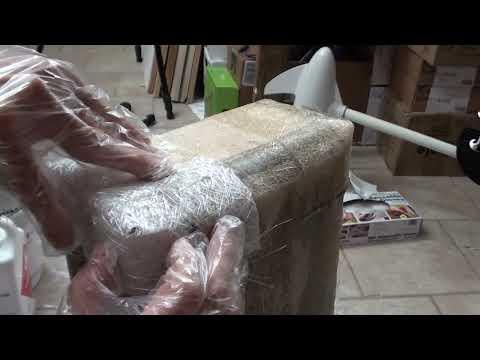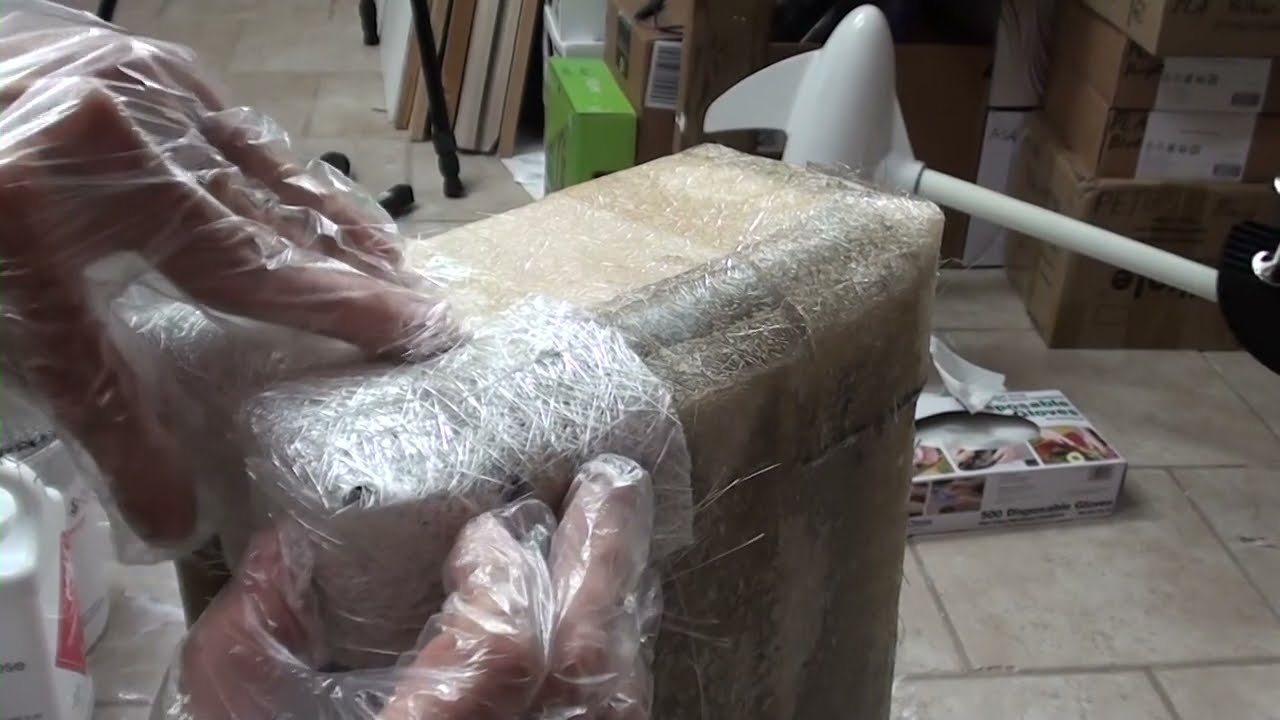Custom fiberglass fabrication is a highly specialized process that combines creativity, precision, and durability to bring your unique vision to life. With our expert team of craftsmen and cutting-edge technology, we can transform your ideas into stunning, one-of-a-kind fiberglass creations that will exceed your expectations. Whether you need custom fiberglass components for automotive, marine, architectural, or industrial applications, our skilled artisans have the knowledge and experience to deliver exceptional results. From concept design to final production, every step of the process is meticulously executed to ensure that your custom fiberglass project is of the highest quality. Our attention to detail and commitment to perfection sets us apart from the competition, making us the go-to choice for all your fiberglass fabrication needs. With our innovative techniques and unparalleled craftsmanship, we can bring even the most intricate designs to life, pushing the boundaries of what is possible with fiberglass. Whether you have a specific design in mind or need assistance in conceptualizing your project, our team is dedicated to working closely with you to bring your vision to reality. Experience the endless possibilities of custom fiberglass fabrication and unlock a world of creative opportunities for your next project. Trust us to deliver outstanding results that are built to last.

Custom Fiberglass Fabrication: Creating Unique and Durable Products
Fiberglass is a versatile material that has found its way into various industries due to its strength, durability, and flexibility. One of the most interesting applications of fiberglass is in custom fabrication, where it is used to create unique and tailor-made products. In this article, we will explore the world of custom fiberglass fabrication and delve into its uses, benefits, and the process involved.
The Process of Custom Fiberglass Fabrication
Custom fiberglass fabrication involves the creation of products using fiberglass materials that are specifically designed and manufactured according to unique specifications. The process typically begins with a consultation between the client and the fabricator to discuss the desired product, its purpose, and any specific requirements.
Once the specifications are determined, the fabricator will start by creating a mold. This can be done by hand or by using computer-aided design (CAD) software to ensure precision and accuracy. The mold serves as a template for the final product and is crucial in achieving the desired shape and dimensions.
After the mold is created, layers of fiberglass cloth are laid down and saturated with resin. The fabricator may also add additional materials such as foam or inserts for reinforcement or insulation purposes. The layers are built up gradually until the desired thickness is achieved, and the product is left to cure and harden.
Once the product is fully cured, it is removed from the mold and undergoes any necessary finishing touches, such as trimming, sanding, or painting. The final product is then ready for use or installation.
The Benefits of Custom Fiberglass Fabrication
Custom fiberglass fabrication offers numerous benefits over other fabrication methods and materials:
1. Durability and Strength
Fiberglass is known for its exceptional strength-to-weight ratio, making it an ideal material for creating strong and durable products. It can withstand harsh environmental conditions, including extreme temperatures, moisture, chemicals, and UV radiation, without losing its structural integrity.
2. Versatility
Fiberglass can be molded into virtually any shape or form, allowing for endless design possibilities. Whether you need a complex architectural structure, a custom-made boat hull, or a unique piece of artwork, fiberglass fabrication can bring your vision to life.
3. Lightweight
Despite its strength, fiberglass is remarkably lightweight compared to other materials such as steel or aluminum. This makes it easier to transport, install, and manipulate during the fabrication process. The reduced weight also contributes to lower energy consumption and cost savings in applications such as transportation or aerospace industries.
4. Corrosion Resistance
Fiberglass is highly resistant to corrosion, making it an excellent choice for products that will be exposed to corrosive environments, such as chemical storage tanks, marine equipment, or outdoor structures. Unlike metals, fiberglass does not rust, corrode, or deteriorate over time.
5. Cost-Effective
Custom fiberglass fabrication can offer cost savings in various ways. Firstly, the mold used in the fabrication process can be reused multiple times, reducing the cost of creating new molds for each product. Secondly, fiberglass is a relatively inexpensive material compared to alternatives like carbon fiber. Lastly, the durability and longevity of fiberglass products mean that they require minimal maintenance and replacement, resulting in long-term cost savings.
Applications of Custom Fiberglass Fabrication
Custom fiberglass fabrication has a wide range of applications across different industries:
1. Architecture and Construction
Fiberglass can be used to create unique architectural features, such as facades, domes, or decorative elements. Its lightweight nature and versatility allow for intricate designs that would be challenging to achieve with other materials.
2. Automotive and Aerospace
Fiberglass is commonly used in the automotive and aerospace industries due to its strength, low weight, and resistance to corrosion. It can be found in various components, including body panels, spoilers, aircraft interiors, and more.
3. Marine
Fiberglass is the material of choice for boat hulls, decks, and other marine structures. Its resistance to water, chemicals, and UV radiation makes it ideal for withstanding the harsh conditions of the sea.
4. Industrial and Chemical
Custom fiberglass fabrication is widely used in industrial and chemical applications, such as storage tanks, pipes, ducts, and equipment. Fiberglass can withstand exposure to a wide range of chemicals, making it suitable for storing corrosive substances.
5. Art and Design
Fiberglass offers artists and designers the freedom to create unique sculptures, installations, and furniture pieces that are both visually striking and durable. Its ability to take on complex shapes and its weather resistance make it a popular choice for outdoor artwork.
Conclusion
Custom fiberglass fabrication is a fascinating process that allows for the creation of unique, durable, and versatile products across various industries. The combination of fiberglass’s strength, lightweight nature, and resistance to corrosion makes it an ideal material for applications ranging from architecture to automotive, marine to industrial. Whether you are looking to bring your architectural visions to life or need a custom solution for your specific industry, custom fiberglass fabrication can meet your needs and exceed your expectations.
“Fiberglass Fabrication Unleashed: Mastering Mold-Free Techniques in Just 15 Minutes!”
Video Source : Nine Hundred Dollar Luxury Yacht
Custom Fiberglass Fabrication
Custom Fiberglass Fabrication
| Feature | Description |
|---|---|
| Material | Fiberglass, a composite material made of fine glass fibers embedded in a polymer matrix, offers exceptional strength-to-weight ratio, corrosion resistance, and flexibility. |
| Applications | Custom fiberglass fabrication finds extensive use in various industries such as aerospace, automotive, marine, and construction. It is commonly employed in manufacturing aircraft components, automotive body parts, boat hulls, and architectural structures. |
| Design Flexibility | Fiberglass allows for complex and intricate designs, enabling the creation of highly customized and aesthetically pleasing products. It can be easily molded into various shapes and sizes, providing versatility for tailored solutions. |
| Strength | Fiberglass exhibits exceptional strength properties, making it an ideal choice for applications where durability and structural integrity are crucial. It surpasses traditional materials like steel and aluminum in terms of strength-to-weight ratio. |
| Corrosion Resistance | One of the key advantages of fiberglass fabrication is its excellent resistance to corrosion. Unlike metals, fiberglass does not rust or corrode, making it highly suitable for outdoor structures and components exposed to harsh environments. |
| Lightweight | Compared to metals, fiberglass is significantly lighter, reducing the overall weight of the final product. This lightweight property enhances fuel efficiency in transportation applications and simplifies handling and installation processes. |
| Cost-Effective | Custom fiberglass fabrication offers cost advantages over traditional materials due to its lower raw material costs, reduced labor requirements for complex shapes, and simplified maintenance. |
As an expert in the field of custom fiberglass fabrication, it is fascinating to witness the wide range of possibilities this material brings to various industries. With its exceptional strength-to-weight ratio, corrosion resistance, and design flexibility, fiberglass has become a go-to choice for creating tailored solutions in aerospace, automotive, marine, and construction sectors.
The versatility of fiberglass allows us to craft intricate designs that meet the exact specifications of our clients. This composite material can be easily molded into various shapes and sizes, providing endless possibilities for creating aesthetically pleasing and functional products.
Furthermore, the strength of fiberglass surpasses traditional materials like steel and aluminum, enabling the development of durable and structurally robust components. Its corrosion resistance makes it an excellent choice for outdoor structures exposed to harsh conditions, as it does not rust or corrode like metals.
In addition to its mechanical properties, fiberglass offers the advantage of being lightweight. This not only reduces the overall weight of the final product but also enhances fuel efficiency in transportation applications. Furthermore, the lightweight nature of fiberglass simplifies handling and installation processes, saving time and effort.
From a business perspective, custom fiberglass fabrication proves to be a cost-effective solution. The lower raw material costs, reduced labor requirements for complex shapes, and simplified maintenance contribute to its economic advantages over traditional materials.
In conclusion, custom fiberglass fabrication opens up a realm of possibilities for creating high-performance, durable, and visually appealing products across various industries. Its material properties, design versatility, and cost-effectiveness make it a preferred choice for those seeking tailored solutions that excel in performance and longevity.

